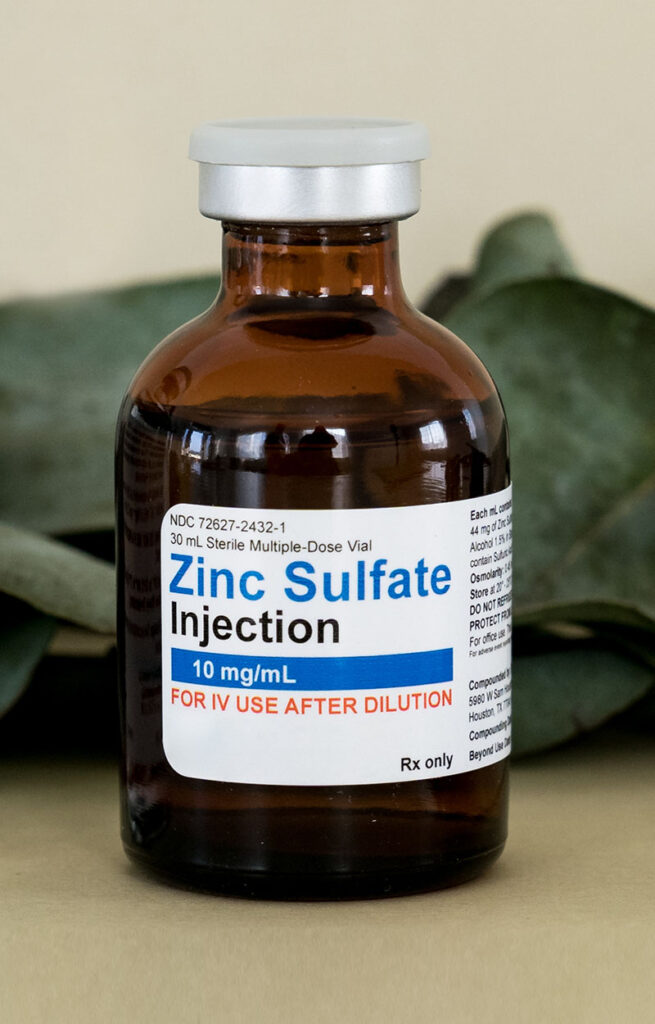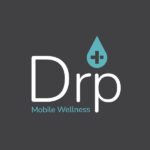In recent years, IV Zinc has been capturing the attention of both healthcare professionals and individuals seeking optimal health. This groundbreaking therapy, known for its remarkable benefits, has gained significant popularity and recognition. By administering zinc intravenously, its absorption and efficacy are enhanced, leading to a range of positive effects on the body. In this article, we will explore why IV Zinc is gaining such widespread attention and provide a brief overview of its administration process. Prepare to unlock the power of Zinc and discover the power it holds for your well-being.
Zinc, an essential mineral, plays a vital role in maintaining optimal health and function throughout the body. From supporting immune function to aiding in wound healing and DNA synthesis, zinc is involved in numerous physiological processes. Understanding the importance of zinc in the body is key to harnessing its benefits.
When it comes to dietary sources, zinc can be obtained from both plant and animal-based foods. Shellfish, meat, legumes, nuts, and seeds are rich sources of zinc. However, the bioavailability of zinc from plant-based sources is lower compared to animal-based sources.
The recommended daily intake of zinc varies depending on age, sex, and specific health conditions. For adult males, the recommended intake is around 11 mg, while for adult females, it is 8 mg. Pregnant and lactating women may require higher amounts of zinc to support the needs of both themselves and their growing baby.
By understanding the importance of zinc in the body, identifying dietary sources, and meeting the recommended daily intake, individuals can ensure they have adequate zinc levels for optimal health and well-being.

When it comes to supplementing with zinc, there are several methods available to meet the body’s requirements that also unlock the power of zinc. These methods include oral zinc supplements, topical zinc applications, and intravenous (IV) zinc therapy.
Oral zinc supplements are perhaps the most common and convenient way to increase zinc intake. They are available in various forms such as tablets, capsules, or liquid formulations. These supplements are taken orally and absorbed through the digestive system. It’s important to follow the recommended dosage and guidelines provided by healthcare professionals or indicated on the product label.
Another method of zinc supplementation is through topical applications. Zinc-based creams, ointments, and lotions can be applied directly to the skin. This method is commonly used for addressing specific skin conditions like acne, diaper rash, or minor wounds. The zinc is absorbed through the skin and provides localized benefits.
IV zinc therapy involves the administration of zinc directly into the bloodstream through a vein. This method bypasses the digestive system, allowing for higher bioavailability and faster absorption of zinc into the body. IV zinc therapy is typically performed in a clinical setting under the supervision of healthcare professionals.
Each method of zinc supplementation has its own advantages and considerations. Oral supplements offer convenience, topical applications target specific areas, and IV therapy provides rapid absorption. Consulting with healthcare professionals can help determine the most appropriate method based on individual needs and health conditions.

IV zinc therapy involves a scientific approach to administering zinc directly into the bloodstream, leading to enhanced absorption and therapeutic effects. Understanding the science behind IV zinc can shed light on its efficacy and benefits.
IV zinc is typically administered by healthcare professionals in a clinical setting. A needle is inserted into a vein, and a sterile solution containing zinc is slowly infused into the bloodstream. The infusion rate and dosage are carefully monitored to ensure safe and effective administration.
IV zinc therapy offers absorption advantages over oral supplements. When zinc is taken orally, it undergoes digestion and absorption in the gastrointestinal tract, which can be influenced by factors such as food interactions and individual variations. In contrast, IV administration bypasses the digestive system, allowing for direct delivery of zinc into the bloodstream. This method ensures higher bioavailability and more efficient absorption, as it avoids potential limitations of oral absorption.
IV zinc exerts its effects through various mechanisms of action. Zinc is an essential cofactor for numerous enzymatic reactions involved in cellular metabolism, DNA synthesis, and immune function. IV zinc enhances these processes by rapidly replenishing zinc levels in the body. Additionally, it has antioxidant properties, protecting cells from oxidative damage. The precise mechanisms by which IV zinc exerts its therapeutic effects in specific conditions are still an area of ongoing research.
By understanding the science behind IV zinc, including its administration, absorption advantages, and mechanisms of action, we can appreciate the rationale behind its use and the potential benefits it offers. However, it’s important to consult with healthcare professionals for proper guidance and to determine if IV zinc therapy is suitable for individual needs and health conditions.
Zinc plays a crucial role in supporting and strengthening the immune system, making it a key component in maintaining overall health. Understanding zinc’s role in immune function, its ability to enhance the body’s defense against infections, and the scientific evidence supporting the immune-boosting effects of IV zinc can shed light on its potential benefits.
Zinc plays a crucial role in supporting and strengthening the immune system, making it a key component in maintaining overall health. Understanding zinc’s role in immune function, its ability to enhance the body’s defense against infections, and the scientific evidence supporting the immune-boosting effects of IV zinc can shed light on its potential benefits.
Zinc’s Role in Immune Function:
Enhancing the Body’s Defense against Infections:
Studies Supporting the Immune-Boosting Effects of IV Zinc:
By recognizing zinc’s role in immune function, its ability to enhance the body’s defense against infections, and the scientific studies supporting the immune-boosting effects of IV zinc, individuals can consider IV zinc therapy as a potential approach to strengthen their immune system. As always, consulting with healthcare professionals is essential for personalized advice and guidance regarding IV zinc therapy and its suitability for individual needs.
Wound healing is a complex process involving various stages, and zinc plays a critical role in tissue repair and regeneration. Understanding zinc’s role in these processes and the impact of IV zinc therapy on wound healing can shed light on its potential benefits in promoting faster and more efficient healing.
Zinc’s Role in Tissue Repair and Regeneration:
IV Zinc’s Impact on Wound Healing:
By recognizing zinc’s role in tissue repair and regeneration and understanding the impact of IV zinc therapy on wound healing, individuals with delayed or impaired wound healing may consider IV zinc as a potential adjunctive treatment. However, it’s essential to consult healthcare professionals for appropriate wound management and personalized guidance on the use of IV zinc therapy in specific wound healing scenarios.
IV zinc therapy not only provides direct benefits but also plays a role in enhancing overall nutrient absorption. Understanding how IV zinc improves nutrient absorption, maximizing the benefits of a healthy diet, and the potential for combining IV zinc with other vitamins and minerals can contribute to optimal nutrition and well-being.
How IV Zinc Improves Nutrient Absorption:
Maximizing the Benefits of a Healthy Diet:
Combining IV Zinc with Other Vitamins and Minerals:
By recognizing how IV zinc improves nutrient absorption, maximizing the benefits of a healthy diet, and considering combinations with other vitamins and minerals, individuals can explore the potential of IV zinc therapy to support optimal nutrition and overall well-being. It’s important to consult with healthcare professionals to assess individual nutrient needs and develop personalized strategies for IV nutrient supplementation.
Zinc deficiency can have a significant impact on overall health and well-being. Understanding the signs and symptoms of zinc deficiency, the factors contributing to its development, and the effectiveness of IV zinc as a treatment option can help individuals manage this condition effectively.
Signs and Symptoms of Zinc Deficiency:
Factors Contributing to Zinc Deficiency:
IV Zinc as an Effective Treatment Option:
Managing zinc deficiency involves identifying the signs and symptoms, addressing underlying factors contributing to deficiency, and considering appropriate treatment options. IV zinc therapy can be a valuable intervention to restore optimal zinc levels and alleviate the adverse effects of deficiency. Healthcare professionals play a crucial role in assessing zinc status, diagnosing deficiency, and guiding individuals in implementing the most suitable management strategies.
The relationship between zinc and mental well-being is an emerging area of research. Understanding the role of zinc in mental health, the potential of IV zinc in reducing symptoms of depression and anxiety, and the promising findings from research can shed light on the potential benefits of zinc for supporting mental health.
The Relationship Between Zinc and Mental Well-being:
IV Zinc’s Potential in Reducing Symptoms of Depression and Anxiety:
Promising Research Findings:
By recognizing the relationship between zinc and mental well-being, considering the potential of IV zinc in reducing symptoms of depression and anxiety, and acknowledging the promising research findings, individuals and healthcare professionals can explore zinc supplementation as a potential adjunctive approach to support mental health. It is important to consult with healthcare professionals for proper evaluation, diagnosis, and guidance on incorporating IV zinc therapy or other zinc supplementation strategies into an individualized mental health treatment plan.
Zinc plays a significant role in maintaining digestive health, and understanding its impact on gastrointestinal disorders can provide insights into the potential benefits of zinc supplementation, particularly through IV administration. In particular, zinc has shown promise in managing inflammatory bowel disease (IBD) and other gastrointestinal conditions.
Zinc’s Impact on Digestive Health:
IV Zinc for Managing Inflammatory Bowel Disease (IBD):
Other Gastrointestinal Conditions Benefiting from IV Zinc:
By recognizing zinc’s impact on digestive health, considering IV zinc therapy for managing inflammatory bowel disease (IBD), and acknowledging the potential benefits of IV zinc in other gastrointestinal conditions, individuals and healthcare professionals can explore zinc supplementation as a potential intervention for alleviating symptoms and improving overall gastrointestinal well-being. It is essential to consult with healthcare professionals to evaluate individual needs, determine appropriate dosages, and incorporate IV zinc therapy or other zinc supplementation strategies as part of a comprehensive treatment plan.
Zinc plays a crucial role in exercise performance and recovery. Understanding zinc’s impact on exercise, the potential of IV zinc in enhancing athletic recovery, and athletes’ experiences with IV zinc therapy can shed light on the benefits of zinc supplementation in the context of sports.
Zinc’s Role in Exercise Performance:
IV Zinc’s Potential in Enhancing Athletic Recovery:
Athletes’ Experiences with IV Zinc Therapy:
By recognizing zinc’s role in exercise performance, considering the potential of IV zinc in enhancing athletic recovery, and understanding athletes’ experiences with IV zinc therapy, individuals engaged in sports and physical activity can explore zinc supplementation as a potential strategy to support performance and recovery. It is important to consult with healthcare professionals or sports nutrition experts for personalized guidance, as they can assess individual needs, evaluate zinc status, and recommend appropriate strategies for incorporating IV zinc therapy or other zinc supplementation approaches into an athlete’s training and recovery plan.
Zinc plays a significant role in maintaining skin health, and understanding its influence on skin conditions like acne can provide insights into the potential benefits of zinc supplementation, including through IV administration. Considering zinc’s impact on skin health, the potential of IV zinc therapy for treating acne, and the perspective of dermatologists can help individuals explore zinc supplementation as a potential approach to support skin health and manage acne.
Zinc’s Influence on Skin Health:
IV Zinc for Treating Acne:
Dermatologists’ Perspective on IV Zinc Therapy:
By recognizing zinc’s influence on skin health, considering the potential of IV zinc therapy for treating acne, and acknowledging the perspective of dermatologists, individuals can explore zinc supplementation as a potential approach to support skin health and manage acne. It is important to consult with dermatologists or healthcare professionals specializing in skin health for personalized evaluation, diagnosis, and guidance on incorporating IV zinc therapy or other zinc supplementation strategies into an individualized acne management plan.
Zinc plays a significant role in maintaining eye health, and understanding the connection between zinc and age-related macular degeneration (AMD) can provide insights into the potential benefits of zinc supplementation, including through IV administration. By considering zinc’s influence on eye health and exploring the potential of IV zinc therapy as a treatment for AMD, individuals can gain a better understanding of how zinc may support ocular well-being.
The Connection Between Zinc and Eye Health:
IV Zinc as a Potential Treatment for AMD:
By recognizing the connection between zinc and eye health, considering the potential of IV zinc therapy as a treatment for AMD, individuals can explore zinc supplementation as a potential approach to support ocular health and manage AMD. It is important to consult with ophthalmologists or healthcare professionals specializing in eye health for personalized evaluation, diagnosis, and guidance on incorporating IV zinc therapy or other zinc supplementation strategies into an individualized treatment plan for AMD.
Zinc has been widely studied for its potential impact on the duration and severity of cold symptoms. Understanding zinc’s influence on the common cold, exploring the efficacy of IV zinc in cold management, and comparing it with oral zinc supplements can provide insights into the benefits of zinc supplementation for combating the common cold.
Zinc’s Impact on the Duration and Severity of Cold Symptoms:
IV Zinc’s Efficacy in Cold Management:
Comparisons with Oral Zinc Supplements:
By recognizing zinc’s impact on the duration and severity of cold symptoms, considering the potential efficacy of IV zinc in cold management, and comparing it with oral zinc supplements, individuals can explore zinc supplementation as a potential strategy for combating the common cold. It is important to consult with healthcare professionals for personalized evaluation, guidance on zinc supplementation, and recommendations on incorporating IV zinc therapy or other zinc supplementation approaches into an individualized cold management plan.
While IV zinc therapy can have potential benefits, it is important to be aware of the potential side effects, proper administration and monitoring practices, as well as contraindications and precautions associated with this therapy. Understanding these aspects is crucial for ensuring safe and effective use of IV zinc.
Potential Side Effects of IV Zinc Therapy:
Proper Administration and Monitoring:
Contraindications and Precautions:
By understanding the potential side effects of IV zinc therapy, ensuring proper administration and monitoring practices, and considering contraindications and precautions, healthcare professionals can make informed decisions regarding the use of IV zinc therapy. Individual patient characteristics and medical conditions should be carefully evaluated, and discussions with healthcare professionals should take place to weigh the potential benefits against the risks and determine the most appropriate course of action.
It is important for individuals to consult with healthcare professionals for personalized evaluation, guidance, and recommendations regarding IV zinc therapy, ensuring that their specific needs and medical conditions are taken into consideration for safe and effective treatment.

Zinc IV therapy is one of the best methods for unlocking the benefits and the power of zinc. Understanding these benefits can help individuals make informed decisions about incorporating IV zinc therapy or other zinc supplementation strategies into their healthcare plans. Here’s a recap of the benefits of IV zinc:
It is important to consult with healthcare professionals for personalized evaluation, guidance, and recommendations regarding IV zinc therapy or zinc supplementation. They can assess individual needs, consider specific medical conditions, and provide appropriate advice on incorporating IV zinc therapy into an individual’s healthcare plan.
Zinc’s multifaceted benefits and the potential of IV zinc therapy make it an intriguing area of exploration for individuals seeking to optimize their health and well-being.
The remarkable benefits of zinc IV therapy highlight its potential in supporting various aspects of health and well-being. From immune system support and accelerated wound healing to mental health, gastrointestinal health, and beyond, IV zinc therapy offers a range of advantages that individuals can consider for their healthcare plans. By recognizing these benefits and exploring the potential of IV zinc therapy, individuals can open doors to new possibilities in optimizing their health.
The immune-boosting effects of IV zinc, its role in tissue repair, and its ability to enhance nutrient absorption showcase the valuable contributions it can make to overall health. Additionally, its potential in supporting mental well-being, managing gastrointestinal disorders, and improving skin health provide individuals with additional reasons to explore the benefits of IV zinc therapy.
With ongoing research and the insights of healthcare professionals, the field of IV zinc therapy continues to evolve. While considerations of proper administration, monitoring, contraindications, and precautions are important, individuals are encouraged to engage in discussions with healthcare professionals to explore the potential of IV zinc therapy in their specific circumstances.
Experiencing the power of zinc involves making informed decisions and tailoring treatment plans to individual needs. By staying informed, seeking guidance from healthcare professionals, and embracing the potential of IV zinc therapy, individuals can take proactive steps toward optimizing their health and well-being.

Drip Admin has written several informative articles and guides on the benefits of IV therapy, emphasizing the science behind the practice. Our writing style is engaging, concise, and accessible, making complex medical concepts easily understandable for readers.